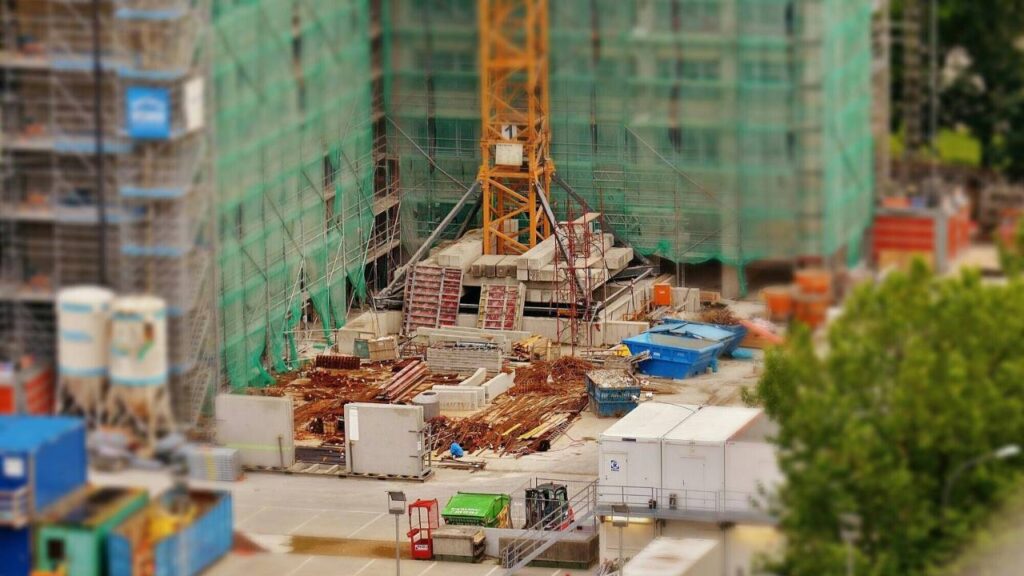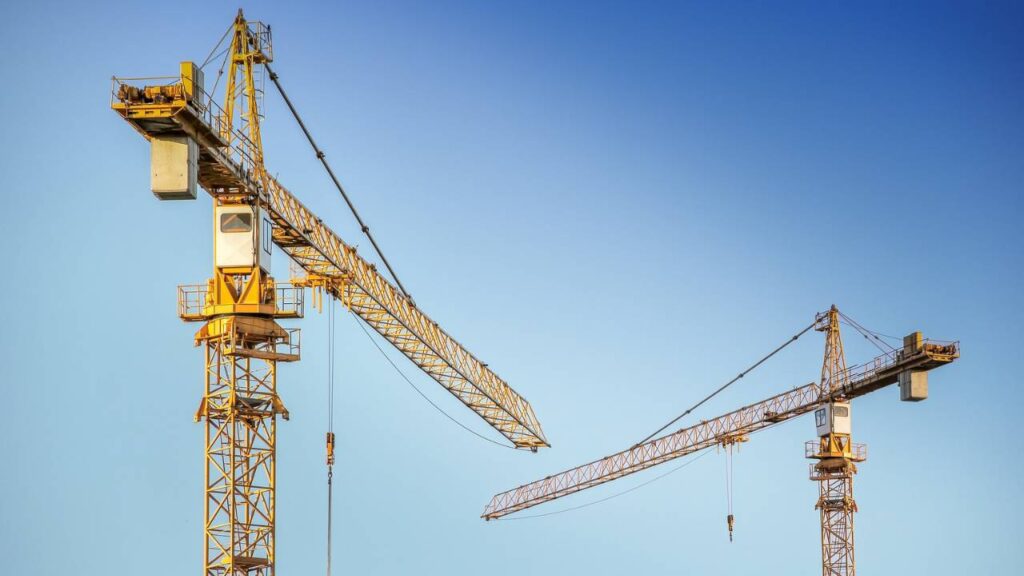
Enhancing construction sector events using professional production techniques can significantly elevate their impact and effectiveness. These events are vital for networking, sharing innovations, and showcasing cutting-edge technologies and projects. By investing in professional production services, you ensure that your event not only looks and sounds superb but also captivates and holds the attention of your audience.
High-quality production can transform a standard industry gathering into a memorable experience. Whether it’s through superior audio-visual elements, engaging presentations, or seamless event execution, professional production adds a layer of polish that reflects well on your brand. It demonstrates a commitment to excellence and underscores the importance of the event’s content.
Moreover, incorporating professional production in your events helps you stand out in a crowded marketplace. When participants are impressed by the quality and professionalism of your event, they are more likely to remember your message and establish favourable connections. This attention to detail can lead to increased interest, better attendance rates, and more meaningful interactions, ultimately boosting your event’s success.
State of the Construction Industry
The construction industry has been significantly impacted by recent economic changes and a growing emphasis on sustainable practices. Understanding these factors can help businesses navigate the current landscape more effectively.
Economic Impact & Recovery
The construction industry experienced notable shifts during the economic fluctuations of 2022. Many businesses faced challenges, including labour shortages, increased material costs, and disrupted supply chains. You might have noticed how these factors slowed down projects and increased budgets.
Despite these hardships, the sector shows promising signs of recovery. Government investments in infrastructure projects have provided a much-needed boost, creating job opportunities and enhancing public services. Your business could benefit from staying informed about these investments and leveraging them for growth.
Innovations in technology have also played a role in aiding recovery. From project management software to automated machinery, these advancements can help streamline your operations, reduce costs, and improve efficiency. By adopting these technologies, you can stay competitive and resilient.
Sustainable Practices
Sustainability has become a priority in the construction industry. You are likely aware of the increasing demand for green buildings and environmentally-friendly materials. This shift is driven by both regulatory requirements and consumer preferences.
Implementing sustainable practices in your projects can offer multiple benefits. For instance, using energy-efficient materials can reduce operating costs over time. Additionally, meeting green building standards can enhance your business’s reputation and attract eco-conscious clients.
There is also a growing emphasis on reducing waste. By recycling materials and adopting circular construction practices, you can minimise environmental impact and cut down on expenses. These efforts contribute to a more sustainable future, while also presenting cost-saving opportunities for your business.
By staying ahead with these practices, you can ensure your projects are not only compliant but also appealing to a broader market.
Advancements in Construction Technologies

Innovation in the construction sector has led to significant improvements in both the methods and tools used, boosting efficiency and productivity. You will see how emerging technologies are revolutionising the industry.
Emerging Technologies
New technologies are constantly being integrated into construction projects. Building Information Modelling (BIM) enables you to create digital representations of physical spaces, facilitating better planning and coordination. Drones provide aerial views, enhancing site surveys and safety inspections.
3D printing allows for swift creation of complex structures and components. Virtual and Augmented Reality (VR/AR) lets you visualise projects before they are built, improving design precision and client communication. Robotics and automation are reducing manual labour, speeding up processes, and increasing accuracy.
Efficiency & Productivity
Adopting advanced technologies significantly boosts efficiency. Prefabrication and modular construction save time, reduce waste, and improve quality. IoT devices monitor equipment and site conditions, providing real-time data to optimise operations. AI and machine learning analyse project data to forecast issues and improve decision-making.
Smart tools and machinery, such as automated bricklaying robots, streamline construction tasks. Energy-efficient materials and green building techniques not only lower costs but also promote sustainability. By embracing these advancements, you enhance your project’s efficiency and productivity, making the construction process smoother and more cost-effective.
Professional Production in Construction Events
Professional production brings numerous benefits to construction events, including enhanced networking opportunities and improved event organisation.
Enhancing Networking Opportunities
Professional production can significantly elevate networking sessions at construction sector events, transforming them into dynamic, productive experiences. Imagine walking into a networking lounge adorned with elegant decor, immediately knowing that you’re in the right place to make valuable connections.
Technology plays a crucial role. Integrating QR codes on badges for instant contact sharing or setting up interactive digital displays showcasing company portfolios helps bridge gaps between construction professionals. Workshops and seminars, organised with precision, foster collaboration, and exchange of cutting-edge industry trends.
Best Practices for Event Organisation
Flawless event organisation is vital in the construction sector. From initial planning to execution, there are several best practices you should consider. Start with a clear agenda, focusing on relevant topics such as innovative construction techniques or regulatory changes.
Engage a professional production team to handle logistics. This might include stage setup, sound systems, and visual aids, which guarantee that presentations are impactful. Utilising companies like Vinehall Dublin can streamline these processes, offering unique solutions such as custom exhibition stands and staging, which make a significant difference.
Provide ample support materials for attendees, from informational brochures to branded banners that clearly direct them to different sessions and workshops. These practices ensure your event runs smoothly and leaves a lasting impression on participants.
Education and Skill Development
Education and skill development in the construction sector are critical for ensuring high standards and up-to-date techniques. Training programs and learning platforms equip professionals with the necessary skills.
Training Programs for Construction Professionals
Training programs tailored for construction professionals focus on both foundational and advanced skills. These programs often cover safety standards, new building techniques, and the latest construction technologies.
You can attend workshops to learn about modern construction methods and regulatory compliance. Interactive courses may provide hands-on experience with tools and machinery. Specialised training can also enhance your ability to manage projects efficiently.
Online certifications and in-person classes are widely accessible, allowing you to pick what suits your schedule. Continuous training ensures you stay competitive and can handle the evolving challenges in the construction industry.
Learning & Sharing Platforms
Learning and sharing platforms are crucial for knowledge exchange and staying updated. Online forums, webinars, and industry-specific social media groups offer valuable insights and advice. These platforms enable you to share experiences and learn best practices from peers and experts.
You can participate in virtual conferences to see the latest innovations and trends. Blogs and video tutorials provide a practical understanding of new tools and techniques. Additionally, these platforms often feature guest speakers who share their expertise and industry experiences.
Access to a community of professionals can assist you in troubleshooting issues and finding creative solutions. Keeping engaged with these platforms ensures you are always learning and improving your skills.
Government Policies and Industry Regulations

Familiarising yourself with government policies and industry regulations can be critical for enhancing construction sector events. These regulations often dictate the standards and funding opportunities that shape the industry.
EU Directives & Funding
EU directives significantly influence the construction sector by setting standards for safety, sustainability, and innovation. These directives aim to ensure that construction practices are harmonised across member states, promoting efficiency and quality. For instance, the Energy Performance of Buildings Directive (EPBD) mandates that buildings in the EU must meet certain energy efficiency standards.
Funding from the EU, such as through the Horizon Europe programme, supports research and innovation in the construction sector. These funds are pivotal for projects focusing on green building technologies and sustainable urban development. For example, the EU’s Build 2020 initiative provided substantial financial support to projects that incorporated cutting-edge construction technologies and sustainability practices.
Construction Industry Federation Initiatives
The Construction Industry Federation (CIF) plays a crucial role in shaping industry standards and practices in Ireland. CIF initiatives often focus on improving safety, training, and professional development within the construction sector. These initiatives are designed to ensure compliance with both national and EU regulations.
CIF campaigns like Project Ireland 2040 support long-term planning and investment in infrastructure. This project outlines a strategic framework for sustainable development in Ireland, ensuring that construction activities align with national growth and environmental goals. By staying updated with CIF guidelines, you can ensure your events are compliant and aligned with industry best practices.
Building Sustainable and Resilient Communities
Creating sustainable and resilient communities involves engaging local residents and leveraging modern innovations in housing. These elements work together to ensure a thriving, adaptable built environment.
Community Engagement
Engaging with local communities is crucial for building resilience and sustainability. You should involve residents in planning and decision-making processes. This foster a sense of ownership and responsibility. Community meetings, workshops, and surveys are effective ways to gather input and maintain open communication.
Effective community engagement can significantly improve the quality of the built environment. By incorporating residents’ feedback, you can design spaces that meet their needs and preferences. This results in more effective and harmonious developments that reflect the values and culture of the community.
It’s also important to educate the community about sustainable practices. This can include the benefits of renewable energy and sustainable construction methods. When residents are informed and motivated, they are more likely to adopt and support eco-friendly initiatives.
Innovations in Housing
Modern housing innovations play a vital role in creating sustainable and resilient communities. Advanced building techniques and materials can enhance the durability and energy efficiency of homes. These innovations help reduce environmental impacts while providing comfortable living spaces.
Integrating renewable energy sources, such as solar panels and wind turbines, in housing developments can significantly lower carbon footprints. In addition, using sustainable building materials like recycled steel and bamboo supports environmental conservation efforts.
Incorporating safety measures for modern homes is equally important. This includes designing structures that can withstand natural disasters and extreme weather conditions. By prioritising safety, you ensure that homes remain secure and livable in the face of various challenges.
These innovations not only improve the quality of housing but also contribute to the overall resilience of the community. By staying at the forefront of sustainable construction practices, you help create a built environment that is both adaptable and strong.
Risk Management and Safety
Effectively managing risks and ensuring safety in the construction sector is vital for the well-being of workers and the successful completion of projects. By adopting efficient risk management strategies and safety protocols, you can create a safer working environment and achieve more sustainable outcomes.
Improving Construction Site Safety
Your top priority on any construction site should be safety. This not only protects your workers but also enhances your project’s reputation among stakeholders. Implement clear safety protocols and ensure regular training sessions for all personnel. Involve contractors in these safety measures to foster a culture of responsibility.
Using high-quality, reliable safety gear is essential. Ensure everyone wears helmets, gloves, and other protective equipment. Regularly inspect the site for potential hazards and address them promptly. Clear communication channels are crucial; everyone should know whom to contact in case of an emergency.
Effective signage and proper lighting can also prevent accidents. Place warning signs near dangerous zones and ensure pathways are well lit. Introducing a reporting system for near-misses can be beneficial. This allows you to identify risks before they lead to serious incidents.
Managing Risks in Projects
Risk management in construction projects involves identifying, analysing, and mitigating potential risks. Start by conducting a thorough risk assessment to pinpoint possible issues. Include social and environmental factors, as they can impact both safety and sustainability.
Engage with stakeholders early to understand their concerns and expectations. Transparent communication helps in aligning the project goals with safety and risk management principles. Contractors should be part of this discussion to ensure they adhere to agreed standards.
Develop a risk management plan that includes contingency measures. This plan should be revisited regularly to adapt to new risks or changes in project scope. Use technology, like project management software, to track and manage risks efficiently.
Incorporate sustainable practices to reduce risks linked to environmental impacts. Use eco-friendly materials and processes to minimise your project’s environmental footprint. This contributes to long-term sustainability and is often appreciated by stakeholders.
By focusing on these specific areas, you can significantly enhance safety and effectively manage risks in your construction projects.
Looking Forward: The Construction Sector’s Future

The construction sector is set to embrace emerging trends and navigate post-pandemic challenges. Expect a blend of technology, sustainability, and resilience as key drivers for future growth.
Trends and Future Opportunities
New technology is reshaping the construction industry. Building Information Modelling (BIM) and augmented reality are making project visualisations and planning more precise. These tools allow you to foresee project outcomes and spot potential issues early.
Sustainable practices are becoming standard. Green building materials and energy-efficient designs reduce environmental impact and operational costs. Embracing these practices not only reduces your carbon footprint but also appeals to eco-conscious clients.
Modular construction is gaining traction due to its efficiency. Prefabricated components speed up construction times and enhance quality control. This method can save you time and reduces waste.
Post-Pandemic Construction Landscape
The construction sector has faced significant changes due to the pandemic. The re-opening phase brings both challenges and opportunities. Health and safety protocols have evolved, influencing how you manage work sites and interactions.
Remote working tools are now integral. Digital project management solutions help maintain collaboration and productivity even with dispersed teams. These technologies keep you connected and streamline operations.
Labour shortages are critical issues. Addressing this involves upskilling your workforce and attracting new talent. Investing in training and development helps you to build a skilled and adaptable team ready for future demands.
Financial stability is another focus. Securing investments and funding is crucial for your projects. Resilient financial planning ensures you can navigate uncertainties and continue progressing in the post-pandemic environment.
Conclusion
Adopting professional production in construction sector events can significantly improve the effectiveness and reach of these events. With high-quality visuals and seamless execution, you can capture and maintain audience interest.
Better production quality not only showcases your projects effectively but also elevates your brand image. This can become a key strategy for a construction company to win more projects.
Investing in professional production can deliver a substantial return on investment. Your events will leave a lasting impression, increasing the likelihood of securing new business. Remember, the right production approach can make all the difference.